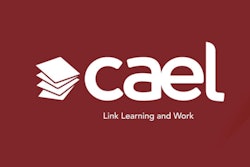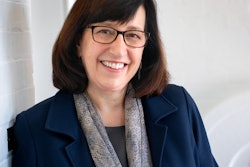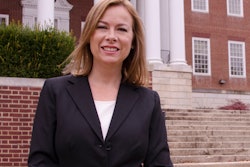When we began our Ford Foundation grant, “Women and University Leadership in Post-Conflict and Transitional Societies” in 2015, we could not envision addressing the effects of the global COVID-19 pandemic, particularly on universities and women leaders. Nor would we have anticipated reading about a Kenyan woman who wept, while she boiled rocks for her children, because there was no available food due to “stay-at-home” edicts.
 Dr. Beverly Lindsay
Dr. Beverly LindsayOver 25 years ago, we initially dealt with the HIV/AIDS pandemic in emerging nations. At a university engaged in our United States Agency for International Development (USAID) grant, Beverly Lindsay conversed with a woman university president concerning challenges and opportunities for universities.
The president said that all students were able to volunteer for HIV/AIDS testing. Approximately 25% tested positive. The president opined that the percentages were likely much higher because many students were afraid to be tested. We discussed the implications for current and longer-range university endeavors and national development.
Later, Lindsay had a Fulbright fellowship to another nation where she observed the conspicuous absence of university personnel upon arrival. Many were attending the funeral of a colleague who had died from AIDS. Such tragic examples raise critical issues of how to address the immediacy of a global pandemic to ensure health, prevent deaths, and prepare simultaneously cadres of future professionals who are indispensable for national development to enhance the lives of its citizenry.
Overwhelming problems exist with the COVID-19 pandemic’s impacts on universities in developing and developed countries and preparing students for public engagement within larger societies. Our work on six continents has exposed us to comparative illustrations where geopolitical, economic and public health matters are intertwined with university missions and leadership aspects of our Ford grant. Hence, we share perspectives and realities from women university leaders in Indonesia, Myanmar, and South Africa – where we have lived and worked – that are part of our Ford Institute.
These countries represent geographic diversity and women’s leadership – in positions where men globally dominate. These women are a dean, a rector/president and a national public health official and former university department chair. People in these countries belong to some of the world’s largest religions: Christianity (South Africa), Islam (Indonesia – the world’s largest Muslim population), and Buddhism (Myanmar) collectively represent approximately 400,000,000 residents.
 Dr. Yolanda Moses
Dr. Yolanda MosesCentral features of our Ford Leadership Institute are preventing problems through contingency planning, addressing and providing mitigating features, and progressing toward viable transitions to sustainable positive educational and social milieus. Ideally, prevention is desirable but not always possible since these women leaders could not prevent COVID-19. Hence, we provide illustrations of how these women are involved in mitigations.
An immediate acute problem was ensuring that students, faculty and professionals could return safely to their hometowns and cease all face-to-face instruction. Upon arrival, domiciles often could not practice social distancing due to close housing proximity for most residents. A notable factor is the young median age of the populations: 29 in Indonesia; 28 in Myanmar; and 27 in South Africa.
It is likely, given current information, that many students who returned to their homes could be asymptomatic, yet transmit the virus to family members and relatives who live in the same crowded households and neighborhoods. Thus, the three leaders emphasized three “Ws:” wash hands, wear masks and wait two meters apart.
The South African professional works in the Ministry of Health on national strategies for screening and testing people with COVID-19 symptoms. The Ministry has both a public health group and a research one that advise on health matters and life-threatening and emerging issues to close gaps and improve national management of the pandemic. A ministry physician has appeared on several CNN programs discussing efforts. Targeted testing at universities is not on the current agenda. He emphasized that COVID-19, the ongoing HIV/AIDS epidemic and other communicable diseases (e.g., hepatitis and tuberculosis) are competing for medical and pharmaceutical attention.
COVID-19 issues are compounded by the three nations’ relations with the World Health Organization (WHO). In South Africa, Zoom meetings are held with WHO regional leaders, concerning domestic issues, particularly since there is considerable temporary and permanent migration between South Africa and neighboring countries via the Southern African Development Community, a geopolitical and economic bloc. In Indonesia, many still traveled to other locales during Ramadan in April 2020. Similarly, in Myanmar, Thingyan (Buddhist New Year) occurred in mid-April amid “stay at home” orders. Simultaneously, thousands of students and faculty were returning home, to the three nations, from international venues. University leaders were concerned about returning faculty, often housed in university accommodations, spreading the virus. Therefore, WHO and its international warnings were being monitored.
A second concern is to ensure that students and faculty, with limited financial resources, have adequate healthy food while prevalent street markets (with low costs items) and various stores are closed. The Indonesian dean started a food bank, based upon examples observed at a California university during a Ford Institute visit. She recognized the food bank as part of the university’s responsibility to students and staff and public engagement with local communities. Likewise, the Myanmar rector started a food bank, and some faculty volunteered to deliver food and necessities to colleagues and staff in isolation.
A third overarching matter is providing non-residential instruction for students with limited bandwidth, especially in less economically viable sections of major urban areas, and often totally no connectivity in non-metropolitan locales. Even when available, our observations and reports indicate that many students and faculty have mobile phones that are not designed for online instruction. Faculty facility in delivering mobile instruction is often limited since this new skill set is coupled with the lack of computers and adequate bandwidth. (This harkens back to our technological strategies for online and mobile learning in USAID programs from 25 years earlier that must be updated continually.)
These problems mean that examinations are postponed and/or delayed indefinitely for the ongoing academic year, thus extending degree completions. Thousands of students may be unable to graduate in the foreseeable future, thus stifling future financial options for themselves and their families, coupled with absent professional skills to foster multi-faceted national development.
A fourth concern is a lack of mental health options in light of: 1) relatively new cultural norms for counseling and therapy; 2) anxieties associated with catching the virus and/or then recovering; 3) curtailment of three major April 2020 religious observances, for millions of Buddhists, Christians and Muslims; and 4) significant lack of financial stability in the nations, where under normal circumstances the average incomes are quite low. Many families in these nations subsist on less than $5 a day.
We learned lessons from the HIV/AIDS pandemic. We can utilize that framework to help understand the uniqueness of COVID-19 and its impact on universities and societies. Health conditions, in relation to higher education and COVID-19, must remain a top priority for the United States and nations everywhere. Equally important is our comprehending the necessity to include the needs of universities in developing countries in a “different normal” via vaccines and preventions. We must ensure that developing nations are not recessed to the periphery as accelerative movements are made for vaccines and treatments.
The American Department of State PEPFAR (President’s Emergency Plan for AIDS Relief) – originated to disseminate HIV/AIDS preventions and treatment protocols to developing nations – shall expand and include the dimensions of mitigating the effects of COVID-19 to move far beyond boiling rocks for food. Everyone must benefit from cooperative engagements among universities and nations for public health and education.
Beverly Lindsay, Ph.D., EdD, is co-director and principal investigator in the Division of Social Sciences at the University of California and a member of the Council on Foreign Relations. Yolanda Moses, Ph.D., is co-director and professor of anthropology in the Division of Social Sciences at the University of California-Riverside. Both are Fellows of the American Association for the Advancement of Science.















